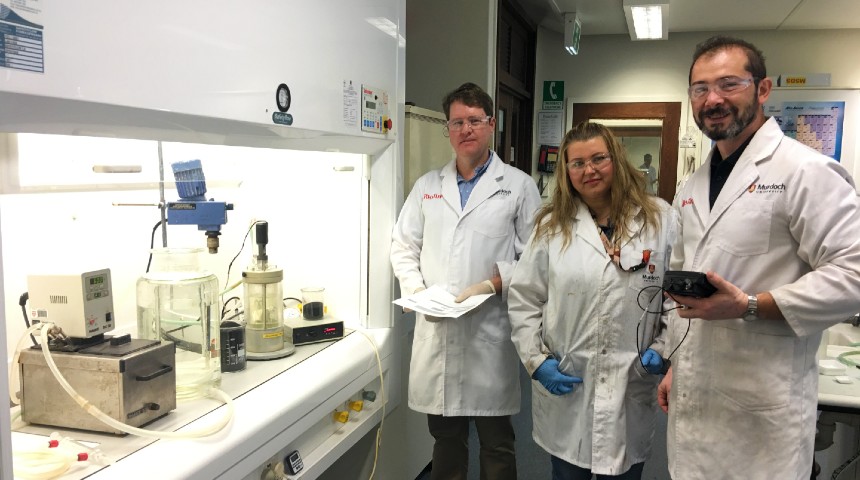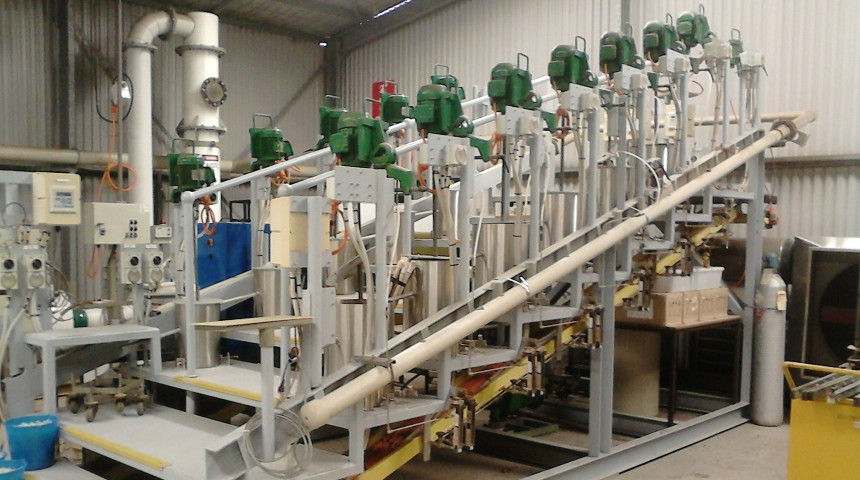
A collaboration between Murdoch University and the Minerals Research Institute of Western Australia is producing a valuable new product while eliminating waste from mining operations.
Australia is the world’s largest producer of lithium. We contribute around 60% of global production and our capacity continues to expand. As the industry grows, minimising the waste generated is crucial.Now, a team led by Murdoch’s Professor Aleks Nikoloski has not only eliminated waste but delivered a valuable product in the process.
Lithium production involves the treatment of a silicate mineral in which lithium is found, called spodumene. Once a processor has recovered the lithium, they end up with leftover material which goes into a tailings dam and becomes waste.
The new process developed by Professor Nikoloski involves reprocessing those waste residues to produce sodium silicate, more commonly known as water glass. This by-product has a range of industrial applications, from making cements and cardboards to producing laundry detergents, waste water-treatment agents and food preservation products.

“The fact the lithium extraction process produces fresh spodumene residue means that it’s actually more effective to produce sodium silicate from than the conventional method, which involves processing virgin host rock silica,” explained Professor Nikoloski.
That allows lithium miners to both produce a cost-effective new product while also eliminating waste from their mining operations. The new technique also makes processing faster and reduces the plant space needed, while lowering the environmental impact.
It presents a new revenue line for mineral producers and Professor Nikoloski says there are other materials which can be processed in similar way to make mineral waste into valuable bi-products.
The future of metals
The application of this type of technology, and the bigger picture for Professor Nikoloski, extends far beyond Western Australia.The Academic Chair of Chemical and Metallurgical Engineering and Extractive Metallurgy has established himself as a renowned industry leader in metals research with his body of cutting-edge work at Murdoch University.
“The vision I have is that the production of metals, which have traditionally been used for construction, changes to other applications due to their intrinsic properties,” said Professor Nikoloski.
In the last five to ten years that shift has been into the use of batteries to facilitate the transition from fossil fuels to renewable energy sources.”Through this, Professor Nikoloski says we will bring cleaner cities to our kids.
“The next stage will be improving the recycling of electronic waste, to eventually reach a point where we have a true circular economy. We will produce metal from ore, use the metal for batteries and bring it back to the cradle to recycle and use again.
“As we recycle, it will become more and more concentrated such that we have easier reprocessing and be able to rely more on clean energy sources.
“So, the future of the world for our kids will be a very clean environment where metals are used for electrochemical properties to drive our energy use and storage needs. That’s what brings the passion into all this for me. And it’s all very achievable.”